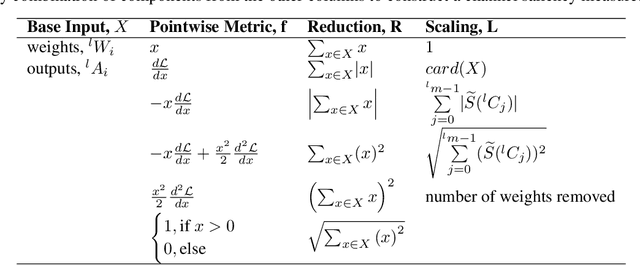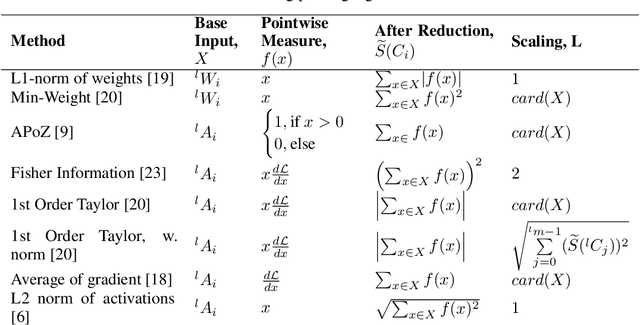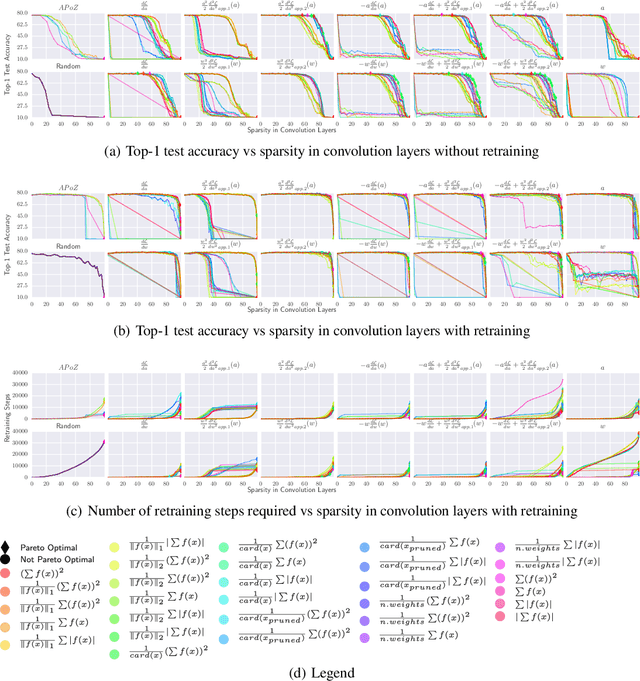A Taxonomy of Channel Pruning Signals in CNNs
Paper and Code
Jun 11, 2019



Convolutional neural networks (CNNs) are widely used for classification problems. However, they often require large amounts of computation and memory which are not readily available in resource constrained systems. Pruning unimportant parameters from CNNs to reduce these requirements has been a subject of intensive research in recent years. However, novel approaches in pruning signals are sometimes difficult to compare against each other. We propose a taxonomy that classifies pruning signals based on four mostly-orthogonal components of the signal. We also empirically evaluate 396 pruning signals including existing ones, and new signals constructed from the components of existing signals. We find that some of our newly constructed signals outperform the best existing pruning signals.
 Add to Chrome
Add to Chrome Add to Firefox
Add to Firefox Add to Edge
Add to Edge